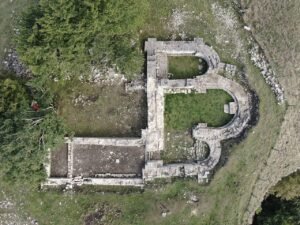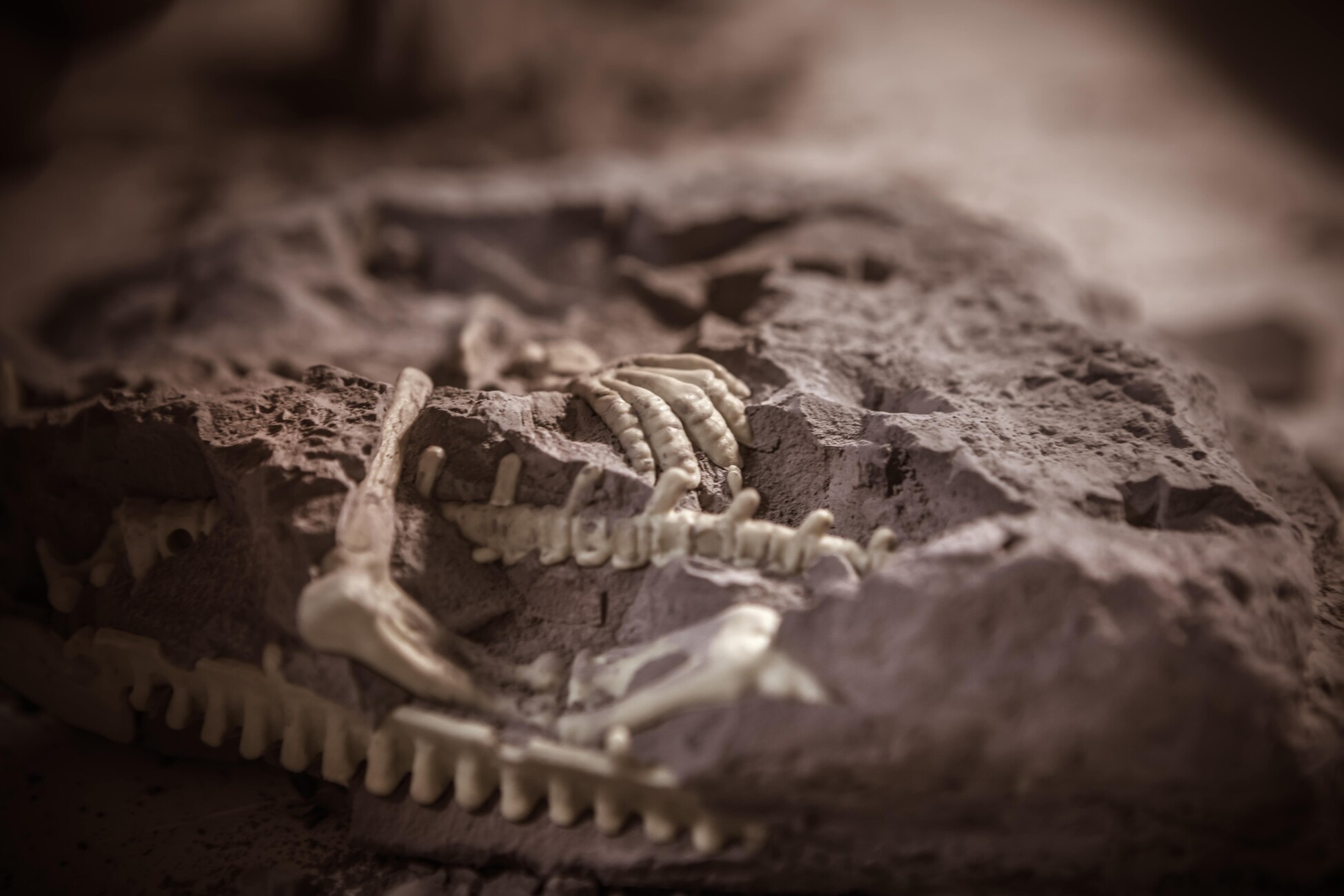
Archaeology
Archaeology is the study of human history and prehistory through the excavation and analysis of artefacts, structures, and other physical remains.
Archaeology is the study of human history and prehistory through the excavation and analysis of... View more
Archaeologists uncover 1st-century votive altar on Mount Arriaundi, Spain
-
Archaeologists uncover 1st-century votive altar on Mount Arriaundi, Spain
Archaeologists from the Aranzadi Science Society have unearthed a Roman-era votive altar dedicated to the ancient Basque deity Larrahe at the medieval monastery of Doneztebe on Mount Arriaundi, northern Spain.
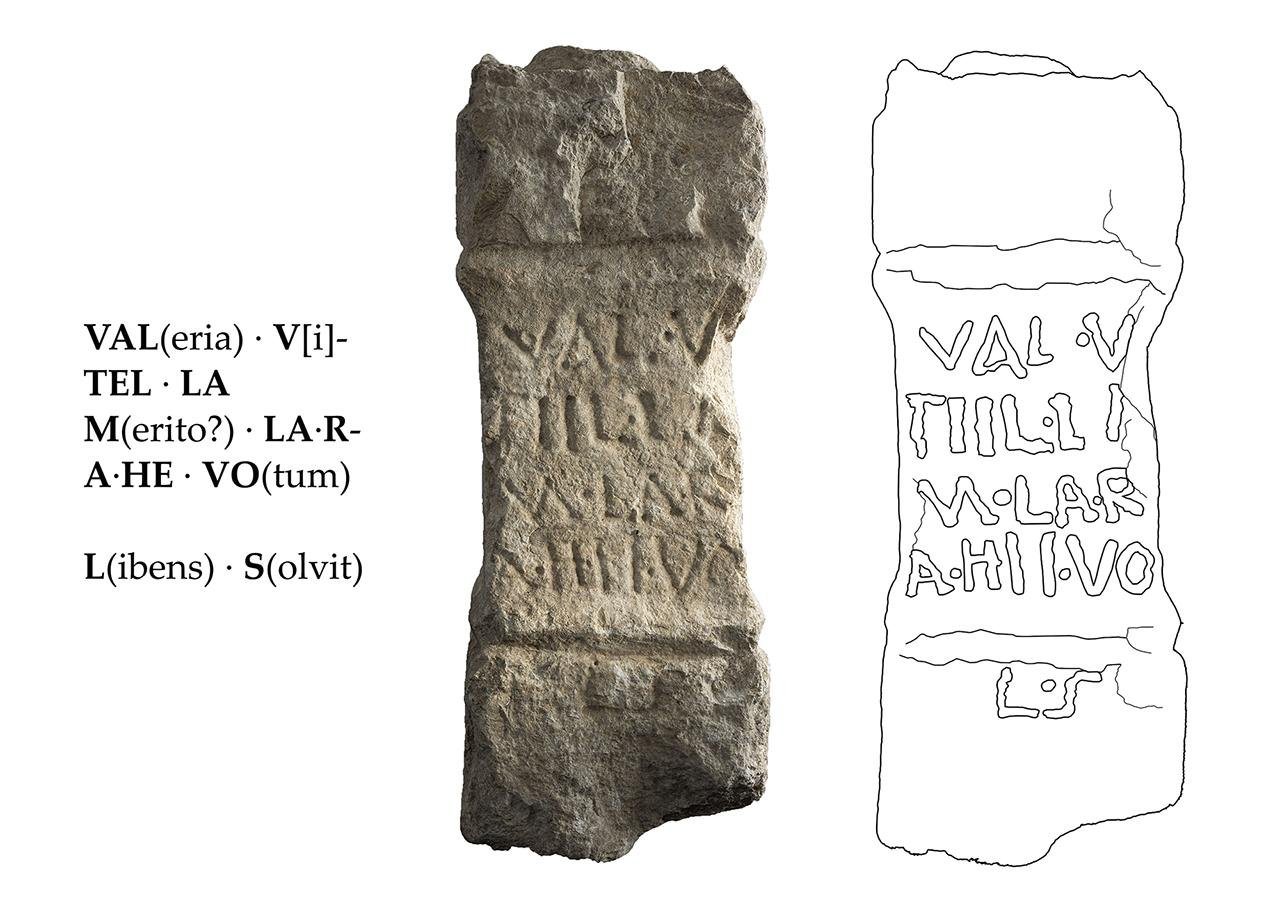
The altar discovered at the medieval monastery of Doneztebe. Credit: Aranzadi Science Society This altar, dating to the 1st century CE, is a significant find for understanding the cultural and religious practices of the Vascones, the ancient inhabitants of the Basque region.
The excavation site on Mount Arriaundi is of profound archaeological importance, showcasing continuous occupation from the Roman era through to the Modern Age. Located five miles northwest of Pamplona in the Gulina river valley near Larunbe, the site offers a strategic vantage point over the Pamplona Basin. This defensible promontory has been a focal point for various cultures due to its significant location.
In the 11th century, the Kingdom of Pamplona established a monastery dedicated to Saint Stephen (Doneztebe) at this site. Archaeologists, with the help of local volunteers, have been excavating the summit since 2010, uncovering the monastery’s original layout, which features three semicircular apses.
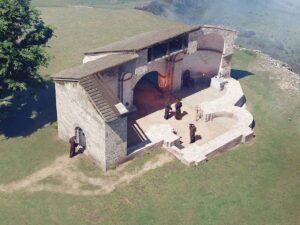
Digital reconstruction of the monastery. Credit: Aranzadi Science Society The votive altar was discovered in 2022 within a medieval well at the monastery site. This stone altar, inscribed in Latin, was dedicated by a woman named Valeria Vitella to the deity Larrahe. The inscription reads:
VAL(eria) V[i]
TEL.LA
M(erito?) LA R
A HE VO(tum)
L(ibens) S(olvit)
This translates to “Valeria Vitella fulfills her vow to Larrahe freely and deservedly.”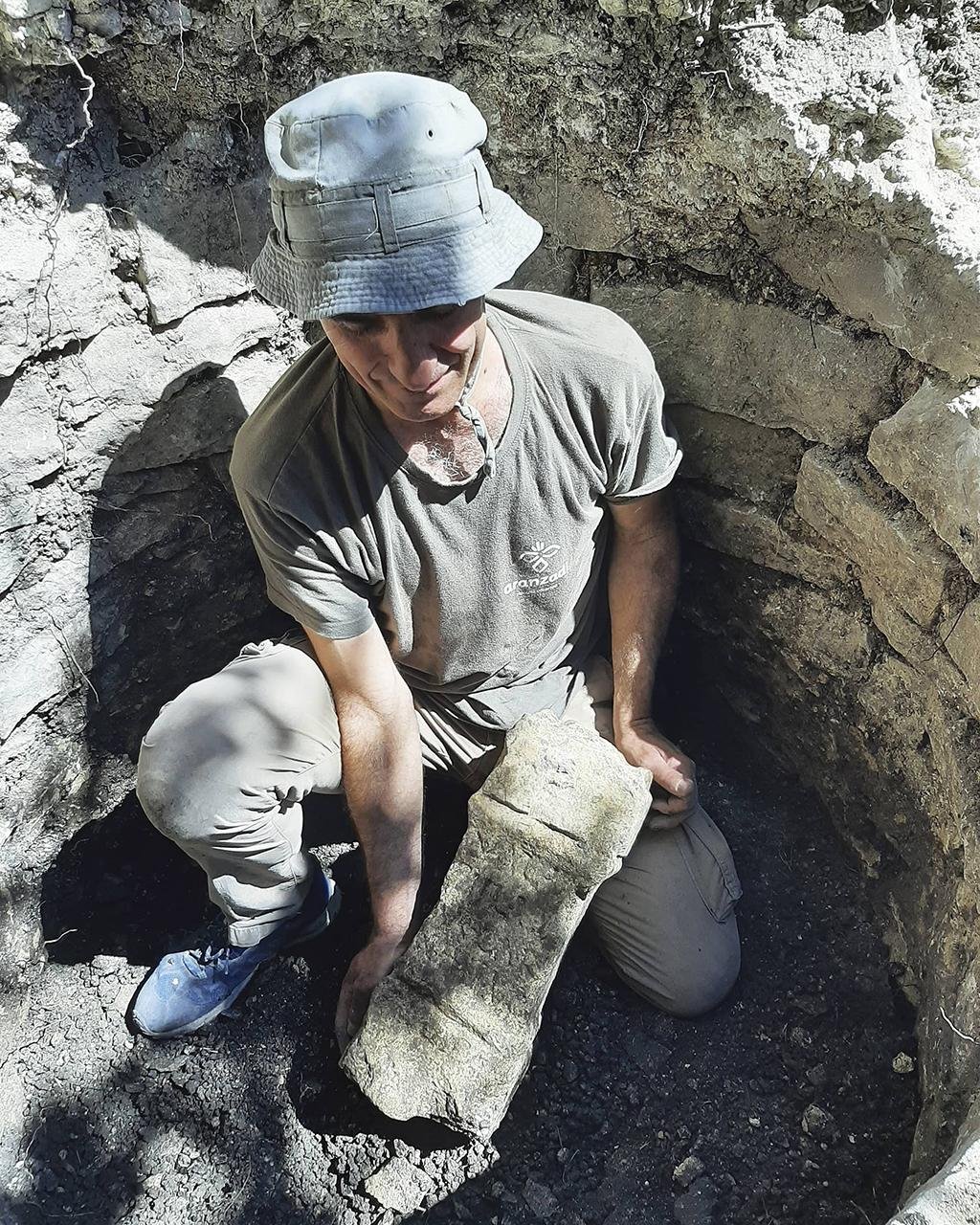
A researcher inside the pit with the altar. Credit: Juantxo Agirre / Aranzadi Science Society Roman altars typically feature a dedication inscribed on the central body, with the upper part crowned and containing a small hole known as a focus, used for sacrifices of wine or incense. The Larunbe altar is unique not only for its age but also for being one of only three altars dedicated to Larrahe found in Spain and the only one recovered through archaeological excavation.
This find is crucial for several reasons. Firstly, it expands the known territorial range of the Basque deity Larrahe. Previously, the deity’s name had only been attested on three other altars located in the Arga basin and its tributary, the Salado River, specifically in Muruzabal de Andión, Irujo, and Riezu. The Larunbe altar is the northernmost and at the highest altitude, indicating a broader area of worship than previously known.
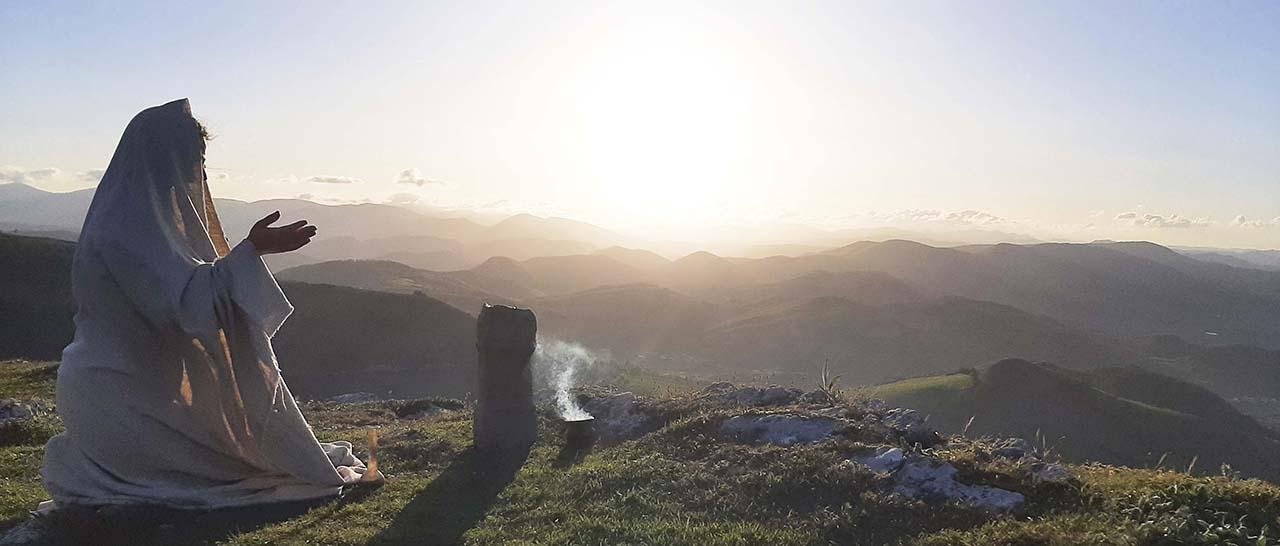
Recreation of the moment of dedication of the found altar. Credit: Aranzadi Science Society According to researchers, “It is evidently a Vascon deity, as it has a final part written -HE which we can probably interpret as the Vascon dative form, indicating to whom it is dedicated: to the deity Larra. The Vascon name, with its connection to modern Basque, suggests interpreting it as a deity related to the field or farmland.”
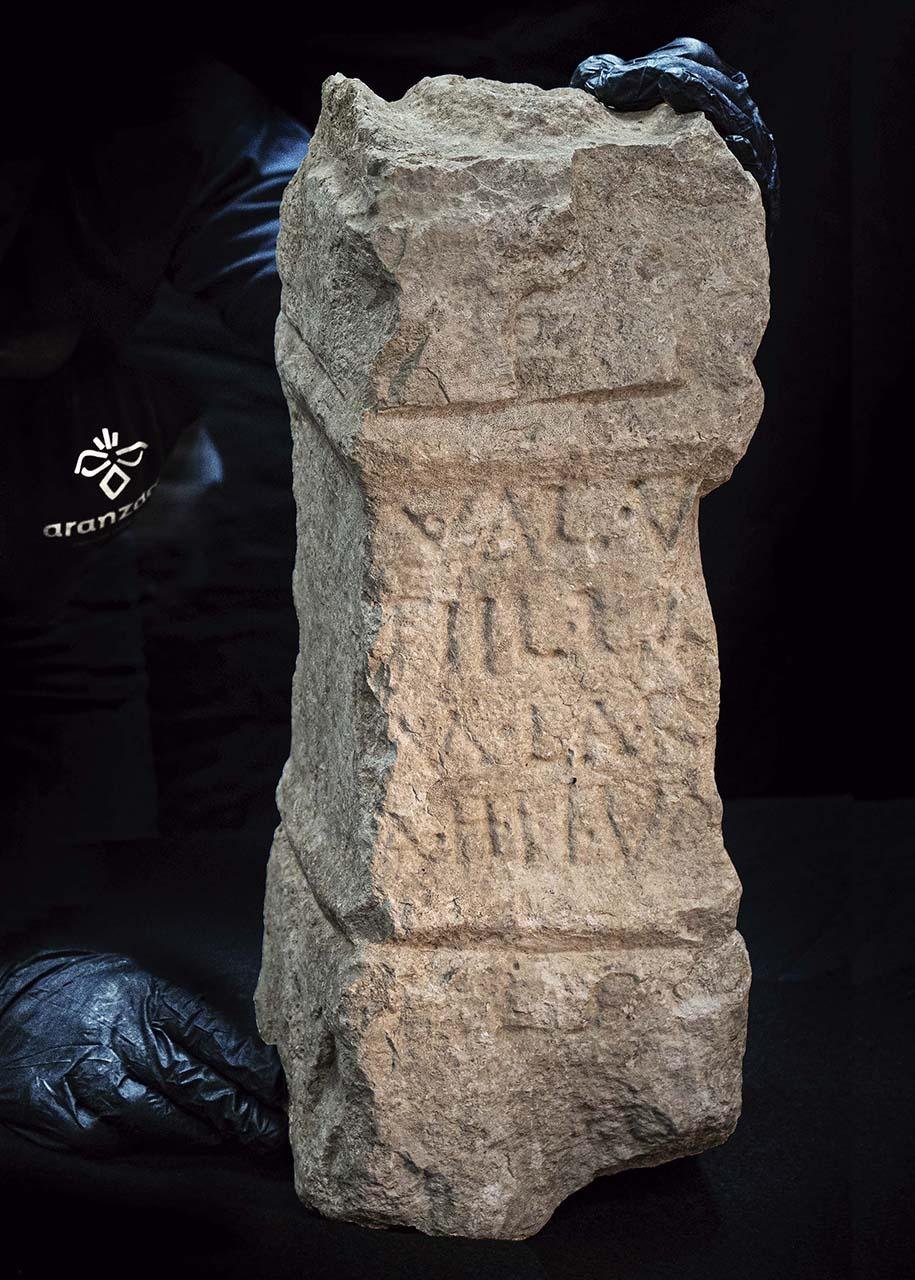
The stone altar was dedicated to the deity Larrahe. Credit: Aranzadi Science Society Additionally, the discovery provides insights into the syncretism between Roman and Basque cultures. While Roman archaeological materials such as ceramic fragments and coins had been found at the site, the votive altar is a more direct testament to the coexistence and blending of Roman and indigenous religious practices.
The Aranzadi Science Society continues to coordinate archaeological excavations in Navarra, with ongoing efforts to uncover more about the region’s historical and cultural evolution.
Sorry, there were no replies found.
Log in to reply.

